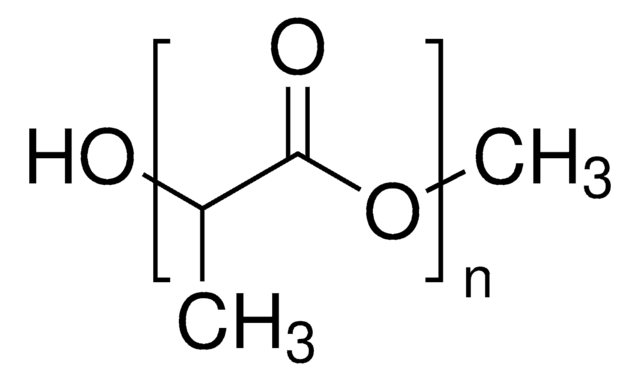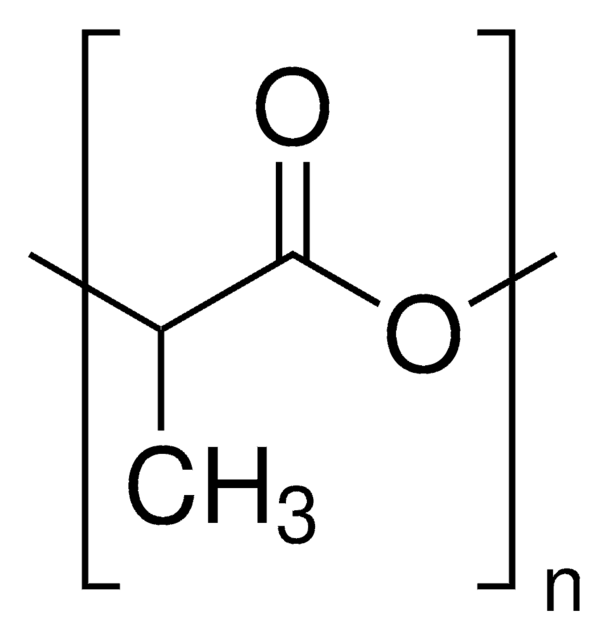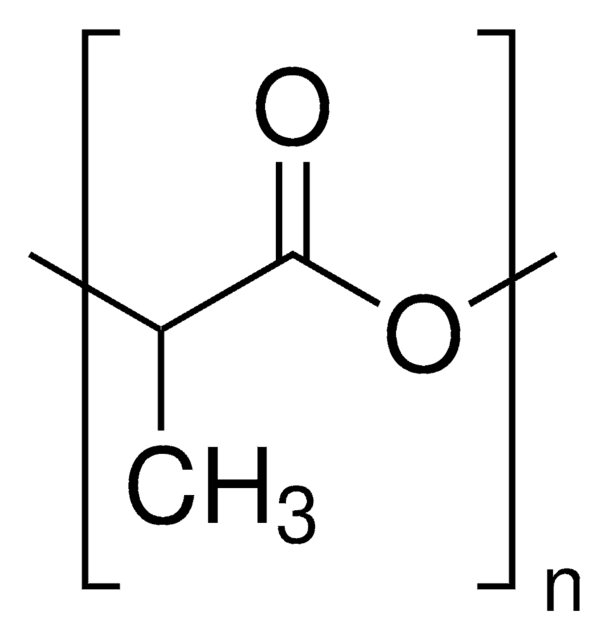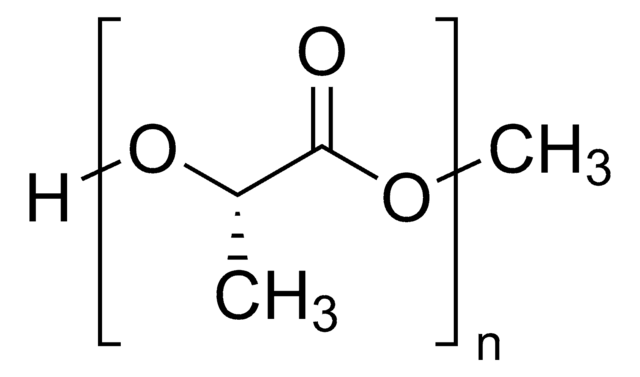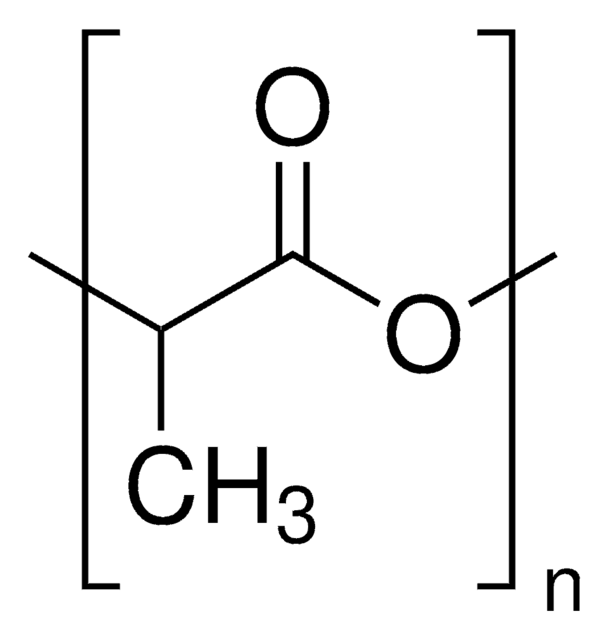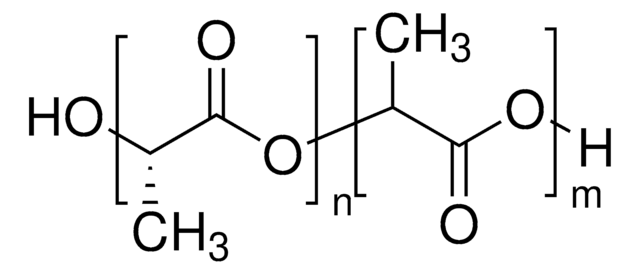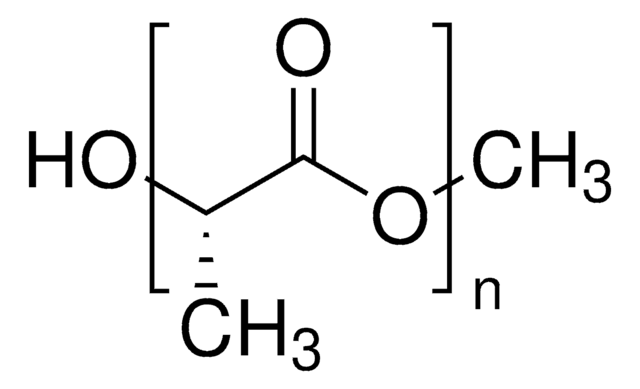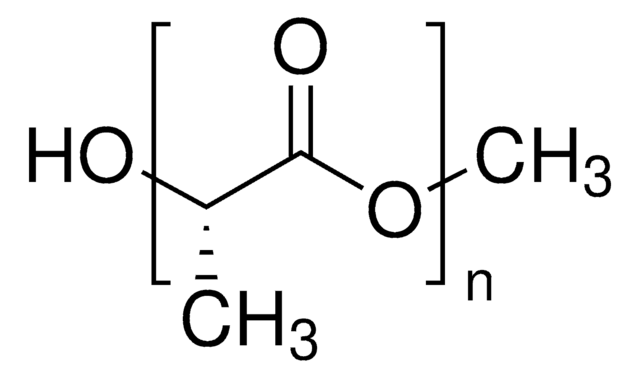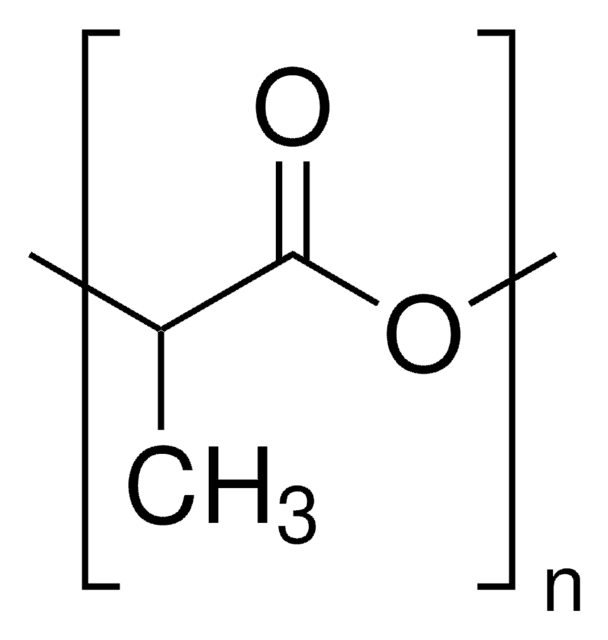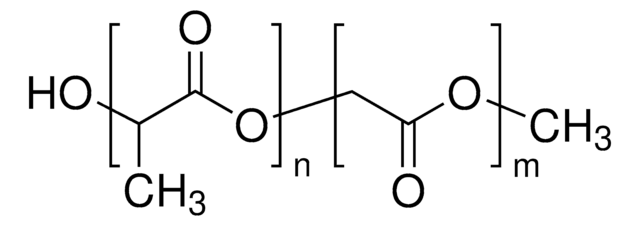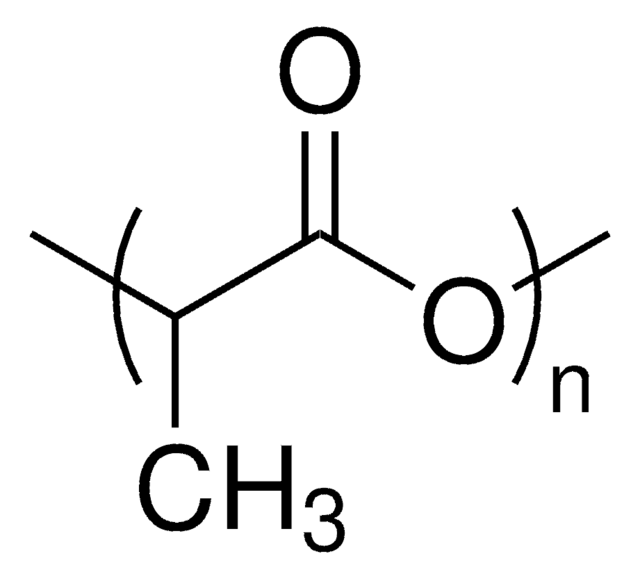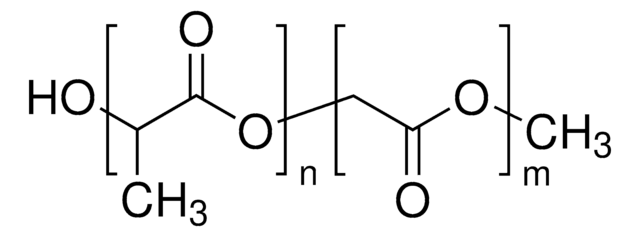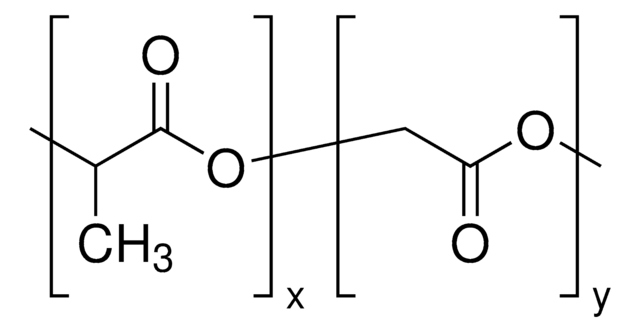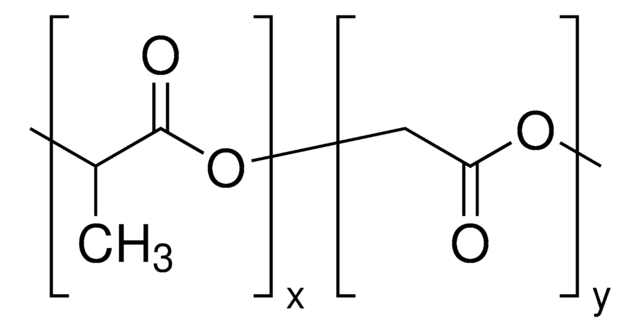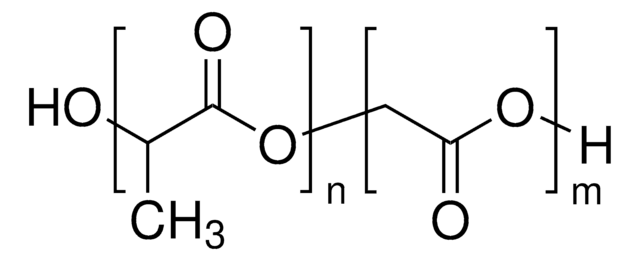769835
Resomer® R 205 S, Poly(D,L-lactide)
ester terminated
Synonym(s):
Resomer® R 205 S, PDLLA
About This Item
Recommended Products
Quality Level
form
amorphous
viscosity
0.55-0.75 dL/g
storage temp.
2-8°C
SMILES string
O1C(C(=O)OC(C1=O)C)C
InChI
1S/C6H8O4/c1-3-5(7)10-4(2)6(8)9-3/h3-4H,1-2H3
InChI key
JJTUDXZGHPGLLC-UHFFFAOYSA-N
Related Categories
General description
Application
Legal Information
Related product
Storage Class
11 - Combustible Solids
wgk_germany
nwg
flash_point_f
Not applicable
flash_point_c
Not applicable
Choose from one of the most recent versions:
Certificates of Analysis (COA)
Don't see the Right Version?
If you require a particular version, you can look up a specific certificate by the Lot or Batch number.
Already Own This Product?
Find documentation for the products that you have recently purchased in the Document Library.
Customers Also Viewed
Articles
Professor Nicola Tirelli (Istituto Italiano di Tecnologia, Italy) highlights the microfluidic-assisted method for fabricating well-defined and reproducible nanoparticles for drug delivery research.
Professor Nicola Tirelli (Istituto Italiano di Tecnologia, Italy) highlights the microfluidic-assisted method for fabricating well-defined and reproducible nanoparticles for drug delivery research.
Professor Nicola Tirelli (Istituto Italiano di Tecnologia, Italy) highlights the microfluidic-assisted method for fabricating well-defined and reproducible nanoparticles for drug delivery research.
Our team of scientists has experience in all areas of research including Life Science, Material Science, Chemical Synthesis, Chromatography, Analytical and many others.
Contact Technical Service